Transcript of the interview for novinky.cz. Author: Jakub Kynčl
25.8.2022
Fifty-year-old businessman Libor Votruba from Liberec has a wild life story behind him. The operator of Prague’s Žluté Lázně and Christmas markets knows well that the combination of alcohol, cocaine and antidepressants can bring a person down to the bottom. But he managed to defeat his demons and now helps other people find their way out of addiction in the rehab center he runs.
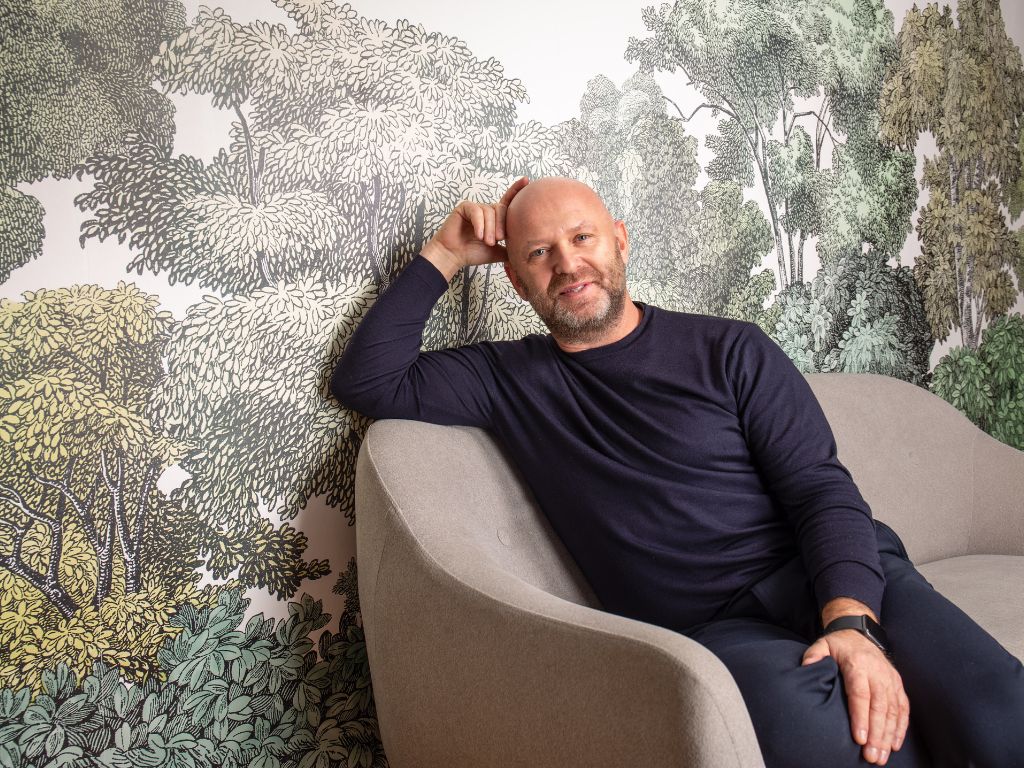
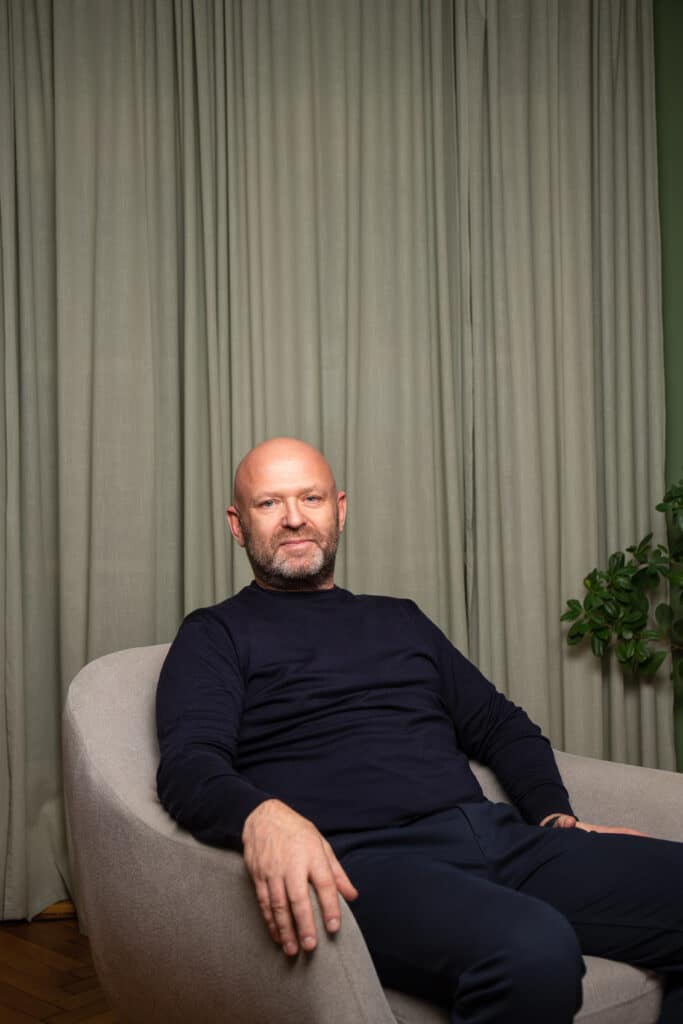
If I’m not mistaken, you spent some time in the US in the 1990s. How did you get there and what kind of preparation did it give you for life?
I studied FTVS in Prague and originally karate. Then I got a scholarship to New York, but I didn’t stay there very long. I saw fat people sitting all over campus and it was clear to me that it wasn’t the sporting environment for me. But somehow, by accident, I got a card that allowed me to work in America.
That must have been a big chance for a guy in his 20s back then, right?
On the one hand it was something miraculous, on the other it was quite a clash with reality, especially financially. Before I got a job, I lived there in absolute poverty on a dollar a day. But it opened up the world to me, I saw something new, and to this day it’s the biggest source of my experience – I’m talking about traveling and seeing how things are done elsewhere.
How long did you stay there then?
Two years. I bought a car and drove across America to Lake Tahoe. I washed dishes for a while in the summer and got a job as a ski and snowboard instructor in the winter. Then someone told me I could cook salmon in Alaska. I slept in a tent there and worked 13 hours a day for the first summer. The next season I got promoted, but worked 17 hours a day, so it was pretty tough. And then in the winter I was an instructor again.
It sounds like hard work, but at the same time a bit like the „American dream“. Why did you return to the Czech Republic?
Because of my mom and my neighbor, who I spent a lot of time with since I was a kid. She was getting on in years, so I didn’t want to do them the favor of settling on the other side of the world. When I came back, I found a girlfriend and rented a stand in Old Town Square where we sold snacks. I originally wanted to finish school, but I started my own business and didn’t want to go back. After that, it was hard.
You’ve been snowboarding in the Czech Republic for a while, right?
Then my great friend Ivo Dragoun, the founder of snowboarding here in the Czech Republic, helped me. Together with my girlfriend at the time and my son’s mother, we started a snowboard school and rentals in Špindl. We were successful, we taught hundreds of people a day and it grew a lot. At first we went back to our stand in Prague over the summer, we also rented a restaurant in Old Town Square, but eventually the winter season in Špindl required a lot of preparation. It was combined with organizing big events such as the World Cup in acrobatic skiing. For about 13 years I was the head of the Czech Snowboard Association and for some time the World Snowboard Association. Then the Ski Federation incorporated snowboarding under itself and we were shot down because all the sponsors went for the Olympics.
That must have been quite stressful. Did you tend to „help“ yourself then?
Before I went to the US I only drank beer and didn’t try any drugs, in the States the snowboarding environment was immediately associated with recreational marijuana smoking, but nothing significant.
Still, you had to think about what to do next. You suddenly went from organizing snowboard races to organizing Prague markets…
A tree fell on a man in Prague and at the time there was a tender for a Christmas market and I thought I’d give it a go. In 2004 I set up a company and we won.
You still have markets under your belt today, how did Žluté Lázně come on board?
They came in at the same time. The same year we went to see the area devastated by the floods. We made a deal with the city council and started working on it. All the money we made on other projects went to the Žluté Lázně. I thought it would turn into a profitable project someday, but now I know that will never happen.
Why not?
The real summer is often maybe only 30 days a year and that doesn’t cover the traffic. We’ve always had to take from the markets to pay for it. Ironically, thanks to the covid, we’ve had to cut back on expenses and it’s getting better. They’ve been able to support themselves year-round, but it’s not profitable overall.
Back to the start-up period, so roughly 2005. How many hours a day were you working at that time?
I was still working the same, about 12 hours a day.
How do you juggle that with family life?
It’s hard, I was never very good at it either. But I have children, whom I love very much. In 2005, I split up with my then partner, my son was two years old at the time. I moved on to another relationship and then it happened again. I was really busy going into it. I had this materialistic dream of getting rich. I was very concerned about money at the time. I was feeling guilty about the breakup, I had found a new partner, I had a bad conscience. I started drinking heavily and doing drugs, which killed and numbed the problems.
How long did that period last?
From about 2007 to 2011, when I went into treatment. That’s when my daughter was born and I wasn’t there because I was out drinking and drugging. To this day, I still can’t really look at pictures of me in the delivery room. When my daughter was a month old, I came home at about 2am on Christmas morning. But that’s the thing about drugs, doing drugs leads to a complete breakdown of morals.
Were you able to ask for help on your own?
It’s hard to admit to someone close to you that you have a problem. But gradually it came to me from the people around me and I felt I had to do something about it. I went to consult my friend Jirka Dvořáček, who is the director of the treatment center in Červený Dvůr. He showed me his hospital, and after a visit I said to myself that I didn’t belong there yet. But on the way back by car I bought a bottle and drank. I crashed.
Thank God I didn’t hurt anybody, but it was a real edge. I had a trial and got a few years probation. The trial was very unpleasant. I always thought of myself as a pretty good person, but when the witnesses testified, I realized how outsiders saw me. These painful moments are so important for future sobriety and treatment.
So where did you go for treatment?
I was looking for a place to go. My arrogance at the time played a part in that. I didn’t want to go to Bohnice because I thought that people from under bridges go there, which I am not. Having the financial means is a real detriment to alcoholics, because they’ll fall later. A friend who had been through it advised me to go to treatment in South Africa, where I went for five weeks.
There a lot of things started to change, I really sobered up, I saw all the things I had done to myself and others. I realized what a sad disease it was, but I still didn’t know what I was facing. I came back for Christmas and this is what an alcoholic always has – he has a lot of problems at work and in his family. They came up again as soon as I got back.
So you were under a lot of stress again. Did you relapse?
Yes, I relapsed for about five or six months after that. I had a therapist, I went to AA meetings.
Did you believe you could sustain it long term?
I think almost everyone who goes to treatment believes it’s not forever. They think they’ll eventually learn to drink in a controlled manner like normal people, because they don’t understand it. Even though they kept telling me that I wouldn’t be normal anymore, I still believed that I could still do it and be in control. Just like other addicts believe.
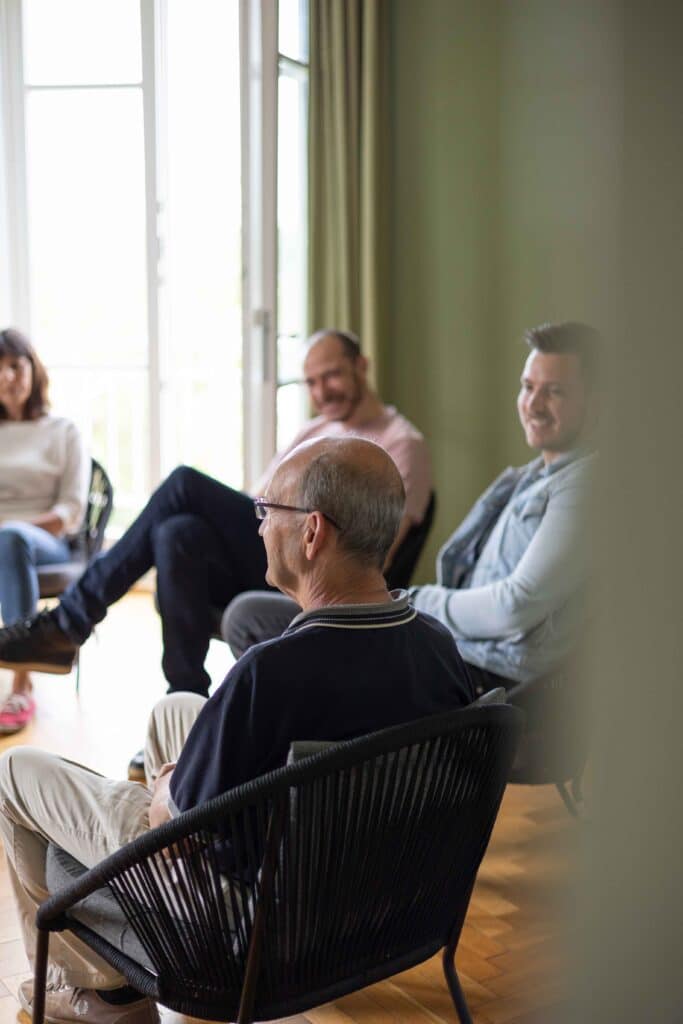
How do Alcoholics Anonymous meetings work?
The program is challenging and discouraging for many people because it requires a belief in something bigger. We have tried to help ourselves hundreds of times and have failed. It forces a person to accept something above them that will help them. I’ve never been a believer, but when I was drinking and doing drugs, that last year, I always prayed the day after that I would die so I wouldn’t wake up. I just always woke up and told myself again: „I’m gonna make it through today.“ But it happened again and again.
Finally, I decided to do what I was told both in rehab and in AA. I’ll just do it and maybe something will change, I told myself.
Did it work on the attendance plan or the inpatient plan?
Alcoholics Anonymous was already on attendance. But I went to two meetings a day for three years. I decided I was going to do everything I could to get out of it. And it started to help, even though I was still struggling with the effects of drinking and being in yet another relationship. My wife and I divorced, it didn’t last. To this day, things are still very painful for me, but luckily I have great relationships with my ex-partners now. I’m proud of the fact that things have been straightened out and we’re friends. Alcoholics Anonymous has helped me a lot.
So you started treatment in 2012?
Yes, my sobriety day is June 1, 2012. I recently turned 10 years old.
Is it a problem to take a stronger painkiller now?
That’s different. Painkillers are fine, in my case. The problem for me has been antidepressants, the quick ones – neurol, xanax, lexaurin. For the first three years of sobriety, I was still taking long-term antidepressants, but not the quick ones that you use to self-medicate and help yourself from a condition. We all have unpleasant conditions, but alcoholics and addicts can’t handle them. We can’t stand it and we need something to overcome it.
After how long did it take you to actually be able to actively return to the company?
After two years of sobriety. I came back earlier, but there was different management and I took over gradually. Before that, I went to a monastery in Thailand to meditate, to get rid of the effects of all that. I was still suffering from it. I thought I would meditate a few hours a day and it would be fine.
The reality was that you get up at 4:00, start meditating, breakfast at six, then meditation, lunch, and then you don’t eat. One just meditates and at ten one goes to bed. It is supposed to start at 10 hours of pure meditation time a day and end at 17. It is a marathon and a difficult thing. Mentally and physically painful. You want to jump out of your skin as the negative stuff comes back.
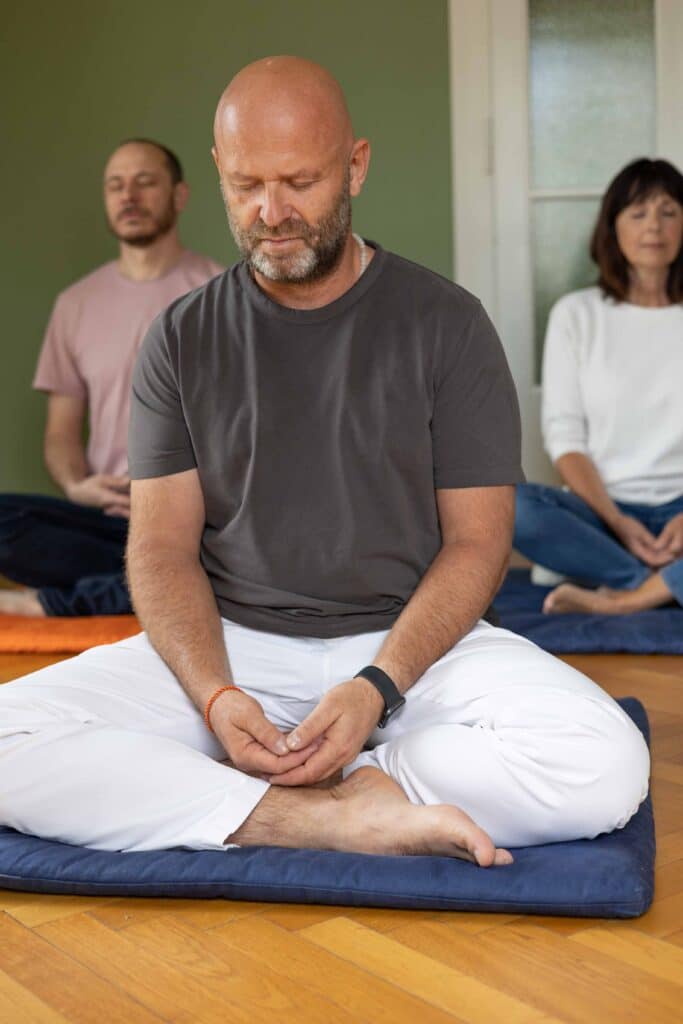
Is that a paid course?
No, it’s based on donations. You can leave it as you please. It took 24 days. I told myself I’d never do it again.
Did you make it through the whole thing?
Yes, and 22 more since then, but shorter.
Why do you keep coming back to it, what do the courses give you?
It pushes me. People who do it intensely are headed for nirvana. Getting rid of fears, doubts, desires, anger. For me, the important thing is not to get rid of them, but not to let them control you. I don’t trust them so much anymore. Through meditation, you find you can’t control anything. If you’re standing on the tracks and a train is coming towards you, you don’t try to stop it either, you just get off the tracks and let it go.
How much time do you devote to meditation now?
A little bit every day, at least 20 minutes. And two or three times a year I’ll do a retreat. A friend and I started the Tisarana Meditation Center here in Prague. There are two teachers, one South African and his German wife, who lived for a long time in the monastery where I used to go. It’s also based on Buddhist tradition here, so it’s free and based on donations. In Thailand it’s a bit different in that people there are used to the fact that the more they give, the more they get. Of course, it’s different here (laughs). But I like doing it, so I’ve been supporting it for seven or eight years.
You also run the NEO Center, which helps addicts. When did you decide to start it? And is it just a pure business, or is it also a form of therapy?
It’s part of it, but I actually thought of it right away, like the snowboarding thing. When I see something while I’m traveling and it’s not here… Already in that rehab in Africa I thought that if I can stay sober, I should do something like this in the Czech Republic. It was born in my head right away, but it took years to realize. We started with a business partner, who was a therapist, in 2017.
So you started the clinic with your former therapist, thanks to inspiration from abroad and your own experience with the issue. I can’t imagine the beginning of this business well enough.
At that time, I bought a property in Rataj nad Sázavou, saying that we would renovate it and make a treatment center there. In the meantime, we rented a villa in Hodkovičky in Prague, set up a practice there, launched the website and went ahead. A lot of people knew us, we had a capacity of 11 people, it filled up gradually. In 2019, it was already making some money and it was decided that we would open a second clinic. That’s where the split in opinion with my colleague came about. I always see other options, and he was fine with that. I also wanted to create a clinic for foreign clients, because until then it was only Czech with one exception.
So we started to reach out to foreign clientele shortly before the pandemic. Unfortunate.
By the time covid started, we already had contracts and it was extremely exhausting, so we thought we’d do an outpatient clinic. We focused on people with anxiety, burnout, etc. I believe there is a need for such a clinic here, but it was too soon, people are not used to it yet. Going to rehab with addictions yes, but going through therapy when they’re burnt out, no. They’re more likely to go to a spa. That’s not what it’s about, it takes therapy. Anyway, we’ve had very few clients. Eventually, we closed it down, paid the rent and just ran clinic number one. In the summer of 2021, we opened a second addiction clinic, which is ready for English-speaking clients. A lot of people will say they’re going on vacation and get treatment. In the second clinic we are now half and half with Czech and foreign clients.
Is it common that people are aware of the need for treatment, but don’t want to tell the people around them?
In the immediate family, they’ll tell, but not the whole family. Or they’re afraid to say it at work, often very high-powered people. They don’t want anyone to hold it against them. They don’t want it known.
How long are the stays at your clinic?
The basic stays are four weeks and six weeks. We also do two-week stays, but that’s more for former clients who need quick help in case of a relapse, or are afraid it might happen and want to deal with it early.
Would you say covid has sent a lot of people to addiction?
Absolutely, the increase is there. And to add to that, I’m starting a new online therapy project especially for teens and families.
How much can you help people remotely?
I always thought there was no train running through it. But I’m hearing more and more from young people that they wouldn’t go into live contact, and the online version helps them. I still believe more in face-to-face contact for myself, but I also think any step is better than none. Even online can help immensely for people who don’t want live contact for whatever reason.
What’s the next step for you personally?
Obviously I would like to get rid of financial insecurity, but I want to stabilize myself primarily. Spend more time in the monastery. I like the people and the environment, I just hate the meditation. But I know it works. I’d like to have the means to support it so that meditation can help other people. I’m always warning those successful 30-somethings, 40-somethings. It’s a very dangerous age. You start to think of yourself as all his own doing, as being so successful, and you get a sense of immortality. But today I know that it’s not only about ability, but also a lot about luck.
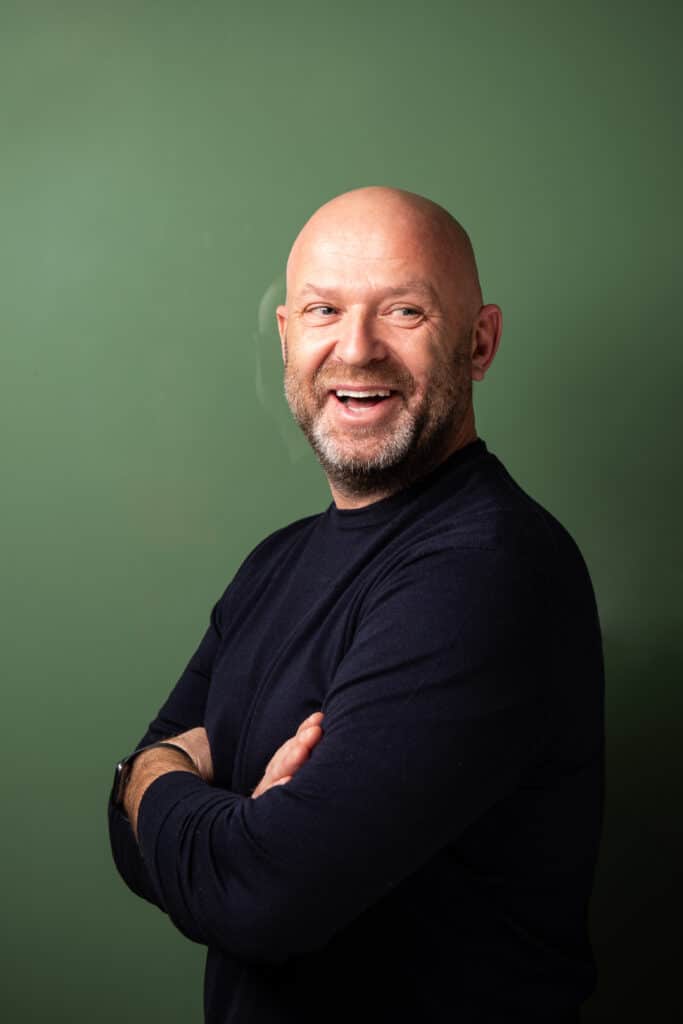
Jak dlouhé jsou pobyty u vás na klinice?
Základní pobyty jsou čtyři týdny a šest týdnů. Děláme i dvoutýdenní, ale to je spíš pro bývalé klienty, kteří potřebují rychlou pomoc v případě relapsu, nebo se naopak bojí, že by k němu mohlo dojít a chtějí to řešit včas.
Řekl byste, že covid poslal hodně lidí k závislostem?
Určitě, ten nárůst tam je. A do toho začínám nový projekt online terapií hlavně pro teenagery a rodiny.
Na kolik jde lidem pomáhat na dálku?
Vždycky jsem si myslel, že přes to nejede vlak. Ale od mladých lidí čím dál víc slýchám, že do živého kontaktu by nešli a online verze jim pomáhá. Pořád sám za sebe víc věřím osobnímu kontaktu, ale také si myslím, že jakýkoli krok je lepší než žádný. I online může lidem, kteří z jakéhokoli důvodu nechtějí živý kontakt, nesmírně pomoct.
Co bude další krok pro vás osobně?
Samozřejmě bych se rád zbavil finanční nejistoty, ale chci se primárně stabilizovat. Trávit víc času v klášteře. Mám rád ty lidi a prostředí, jen tu meditaci nesnáším. Vím ale, že funguje. Chtěl bych mít prostředky na to, abych to podporoval, aby mohla meditace pomáhat dalším lidem. Vždycky varuji ty úspěšné třicátníky, čtyřicátníky. Je to hrozně nebezpečný věk. Člověk si začne o sobě myslet, že je to všechno jeho zásluha, že se mu tak daří, a dostane pocit nesmrtelnosti. Dnes přitom už vím, že to není jen o schopnostech, ale hodně i o štěstí.